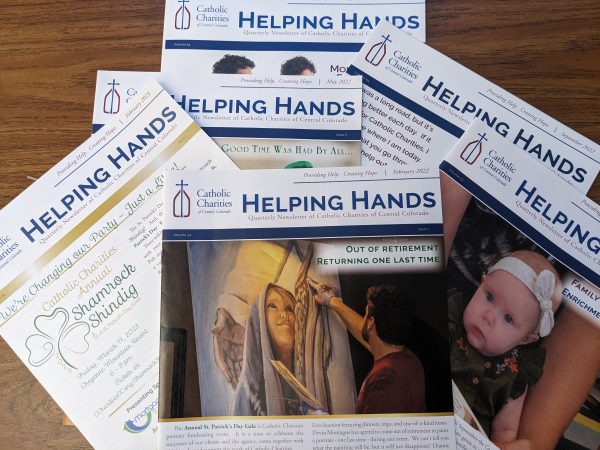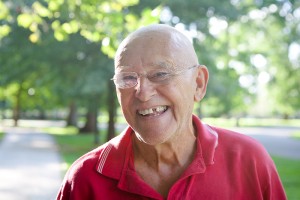
BY BRANDI RANDLE
Terri knows a little about karma. After being an independent businessman, accused of theft, taking advantage of customers, and facing prosecution, he suffered two strokes due to stress which caused high blood pressure, leaving him, as he says, “at about a second-grade level of communication.” He lost everything. Now without his business, his income, savings, and to some extent, his family, he had to start over. Looking for a job presented some problems because of his notoriety, but eventually, he landed a day labor position, which led to handyman work at a local business.
Everyone deserves a second chance, and that is exactly what he got. He worked hard to do the best job he could, whether that was shoveling snow, painting, raking leaves, or picking up trash. His motto is “You make it a great day,” meaning that you are responsible for your actions, happiness, and attitude. Terri says, “I have a good attitude. I’ve turned it all around.”
Terri began coming to Marian House to eat several years ago to save money. He likes the food, especially the salads. He says his mom always said to eat well, and he tells his mom that the food at Marian House is better than a restaurant. He gets two different salads every day. He also likes to tease some of the other patrons by telling them that he’ll “buy them lunch.” He likes the atmosphere at Marian House: he also likes to see the occasional Nun there at the table, and he says the volunteers are “good people!”
Recently, Terri had a medical issue that caused him to miss work for a few weeks while he was hospitalized. It was fairly serious, and he came to the Marian House to get help from the SET Clinic with follow-up care, especially with changing the bandages. He says, “The doctors really care. I got to see the older doctor. He took the wound apart and inspected it, then put it back together. It wasn’t healing properly, so he told me to come back on Monday. My Medicaid is messed up, so even though the hospital gave me a prescription, I couldn’t get it filled because it was so expensive. The doctor at the clinic gave me a prescription to help with the infection and told me to take it every day. They took better care of me in the one day at the clinic than they did in the hospital, and I was there for ten days! I’m a diabetic, so I have to be careful.”
Terri continued to rave about the SET Clinic and the staff, “It’s obvious that the doctors want to be there. They want to help.”
“Sometimes I use the clothing closet at the Marian House for a shirt or a pair of pants or some hygiene items, but mainly I use the Marin House for food,” said Terri. He has a limited income, so he doesn’t use a lot of the services, but he does take advantage of those that help him remain self-sufficient. He says that he borrowed his parent’s motor home and sleeps there, so most of his needs are met.
Terri’s days are filled with work that he enjoys and people he likes to work with. He enjoys the people he meets at Marian House and the volunteers he encounters, and clearly, he is grateful to the medical staff at the SET Clinic for all the assistance he has received through his medical ordeal. Occasionally gets to see his children and grandchildren or visit his siblings and mother, who live in northern Colorado. For now, he has what he needs, and life is good.
Terri says he just wanted to stop by and tell someone at Catholic Charities “Thank-You” for the services he received at Marian House and from the SET Clinic. “You make it a good day!”
Brandi Randle was a marketing assistant with Catholic Charities.
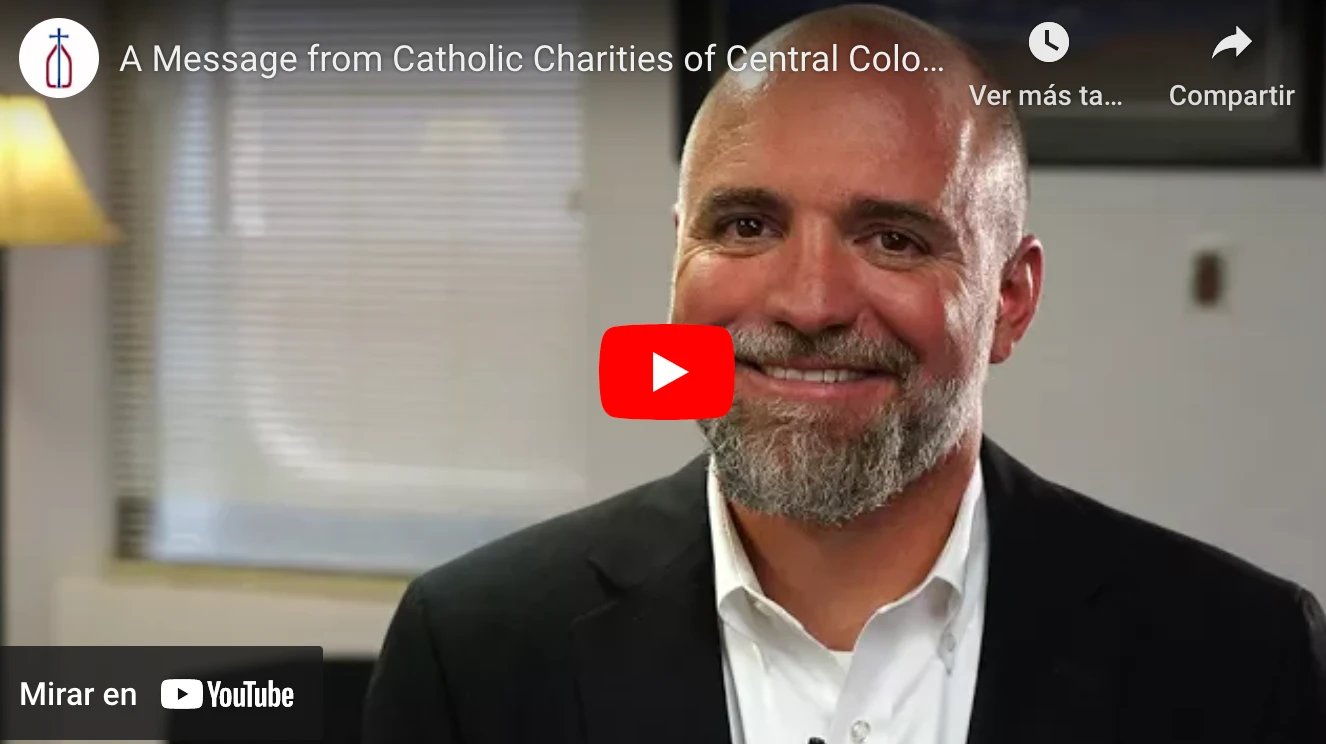

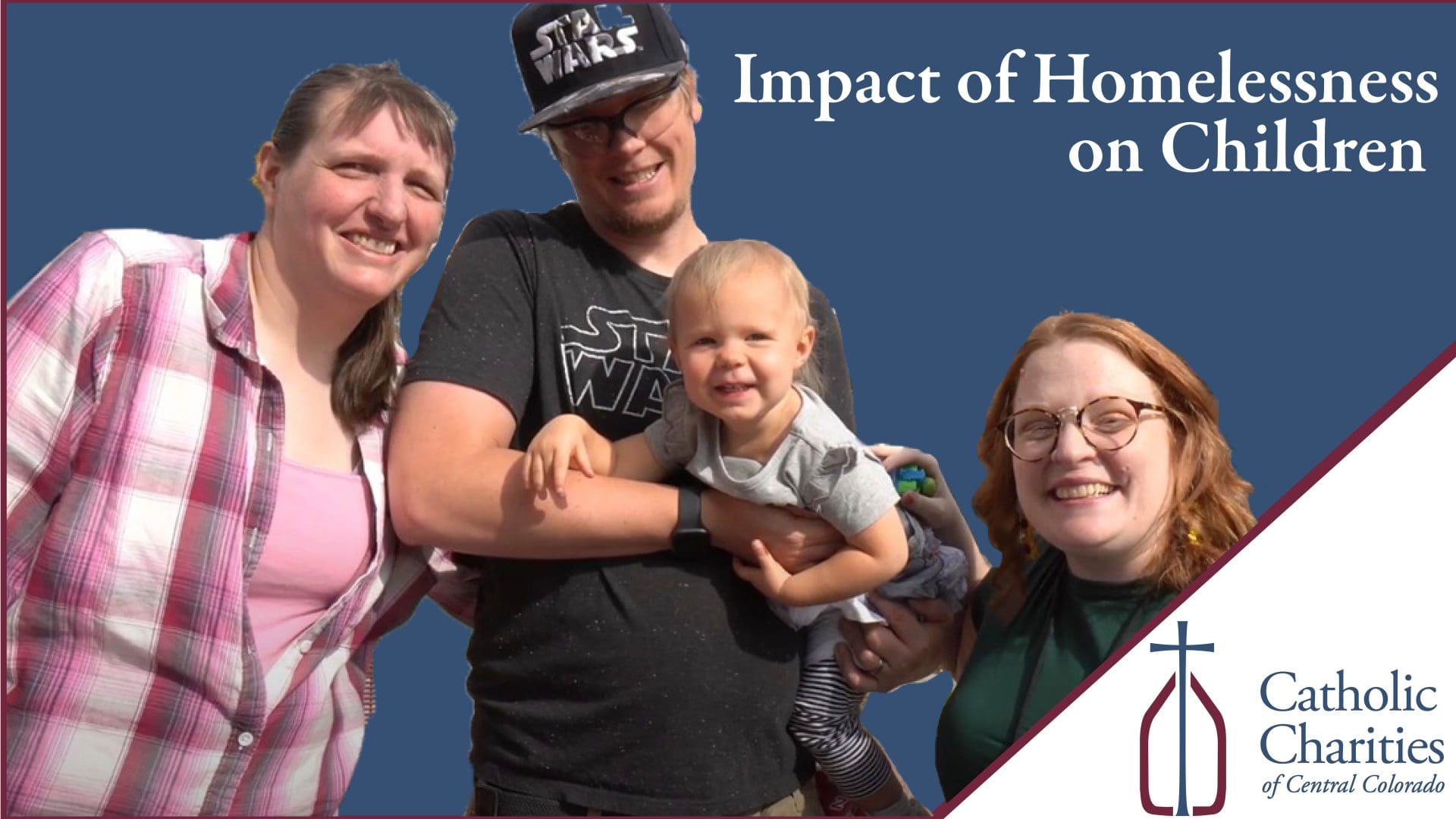

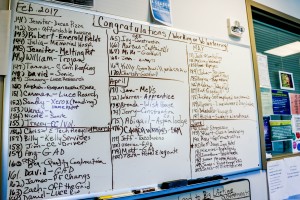
 Recently, Joel Fluegge joined the team as Marian House Community Services Manager, and together, he and Stulpin have successfully linked clients with local employers, usually having more job opportunities than trained clients to take available positions. Goodwill Industries conducts a hiring event at the Marian House every six weeks with pre-screened candidates and, to date, has employed more than 25 people. Last fall, the first annual Marian House Job Fair was held on-site, where eight employers offered interview opportunities to help facilitate job connections. Another Job Fair is planned for November, just before the holiday hiring season. Stulpin said, “For someone caught in the cycle of poverty, sometimes all it takes is a little personalized attention to begin taking the steps toward a better life.”
Recently, Joel Fluegge joined the team as Marian House Community Services Manager, and together, he and Stulpin have successfully linked clients with local employers, usually having more job opportunities than trained clients to take available positions. Goodwill Industries conducts a hiring event at the Marian House every six weeks with pre-screened candidates and, to date, has employed more than 25 people. Last fall, the first annual Marian House Job Fair was held on-site, where eight employers offered interview opportunities to help facilitate job connections. Another Job Fair is planned for November, just before the holiday hiring season. Stulpin said, “For someone caught in the cycle of poverty, sometimes all it takes is a little personalized attention to begin taking the steps toward a better life.”

